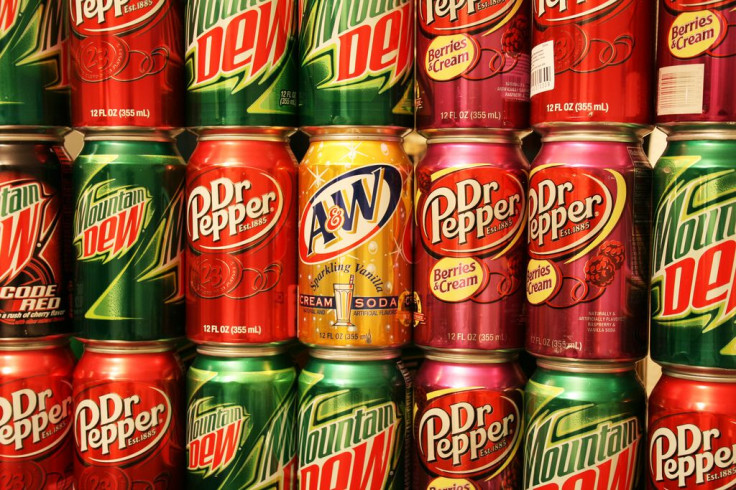Soda Tax Won't Work: 'Regressive' Tax Would Cause Poor Families To Switch To Other High Calorie Drinks

In the fight to curb obesity, informing the public about the problems of fatty foods hasn’t worked, and governments have had to create interesting ways of persuading people to stop consuming them. But with policies such as New York City Mayor Michael Bloomberg’s soda ban getting shot down, it has been difficult to manage sugar intake, which can be a contributor to the current obesity epidemic. Now, a new study says that even if sugary beverages were to be taxed like cigarettes, people would just substitute their normal drinks for others that are cheaper, and just as sugary.
“Instituting a sugary beverage tax may be an appealing public policy option to curb obesity, but it’s not as easy to use taxes to curb obesity as it is with smoking,” Chen Zhen, Ph. D., a research economist at the non-profit research institute RTI International, said in a press release. “Consumers can simply substitute an untaxed high calorie food for a taxed one. And as we know, reducing calories is just one of many ways to promoting healthy eating and reducing nutrition-related chronic disease.”
Read More: Kindergarteners Who Guzzle Sodas, Sugary Drinks 43% More Likely To Be Obese
The study looked at families’ food purchases based on data from the 2006 Nielsen Homescan panel, which gathers information about families’ spending based on scanned UPC codes, purchase quantities, and coupons used.
They found that lower income families bought soda more often than high-income families. A tax would result in higher priced beverages, and these families wouldn’t be able to afford them; therefore, the study authors predict, they would substitute for other untaxed drinks. Researchers called it a regressive tax.
How Might A Soda Tax Work Then?
In an essay published in the journal Preventing Chronic Disease, of the Centers for Disease Control and Prevention (CDC), Jason Fletcher, an associate professor of health policy at Yale University, argues that beyond low-income families not being able to afford soda-taxed beverages, some companies might just lower their prices to accommodate the tax, a tactic known as strategic pricing.
“In addition to encouraging other potential health benefits, sugar-sweetened beverage taxes may be helpful in reducing obesity rates if they are used as one aspect of a larger, more comprehensive policy approach that aims to redirect consumers away from caloric sweeteners and toward more healthful alternatives such as water or food without added sweeteners,” Fletcher, and co-authors David Frisvold and Nathan Tefft, wrote.
They suggest a policy that taxes soda while subsidizing those who buy water would be much more effective than a soda tax on its own.
NYC's Failed Soda Ban
Mayor Bloomberg tried another option — banning sugary beverages over 16 ounces.
“Each year, New Yorkers gain 7.5 million pounds,” NYC Health Commissioner Dr. Thomas Farley said at a panel on the diabetes epidemic last month. “If the soda ban went through, it would have reduced that by a third.”
However, Bloomberg's plan was struck down by courts twice, because of loopholes that meant it wouldn't effectively be enforced. For example, 7Eleven’s 64-ounce Big Gulp drink would have been free from the ban.
Read More: NYC Soda Ban May Only Target 8% Of Consumers, Mostly The Obese, Less So The Poor
More than 35 percent of American adults and about 17 percent of children and adolescents are obese, according to the CDC. Although diabetes is a major obesity-related condition, being overweight can also lead to heart disease, stroke, and even cancer.
Source: Zhen C, Finkelstein E, Nonnemaker J, et al. Predicting the Effects of Sugar-Sweetened Beverage Taxes on Food and Beverage Demand in a Large Demand System. American Journal of Agricultural Economics. 2013.
Published by Medicaldaily.com



























